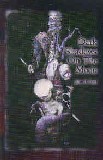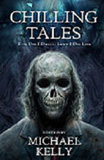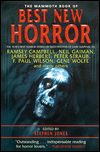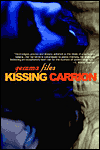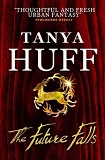Devil's Drums, by Vivian Meik
Book Review by Michael D. Griffiths
Have you read this book?
Although this book has just been released by Medusa Press, Devil's
Drums, by Vivian Meik is over a hundred years old. Meik might have the
most famous short story titles of any author that you have never heard
of. White Zombie was not only a classic horror picture starring Bela
Lugosi, it was also obviously the name of Rob Zombie's hugely successful
first Band. Rob Zombie also steals another of his short story titles
for his song, Thirty Acres of Hell. The story Devil's Drums has also
been used by other creative individuals.
Devil's Drums is a series of short stories that takes us into the depths of mystical Africa just after the beginning of the 19th century. The stories have a theme of realism that explorers and writers could not achieve as easily today. Meik lived in Africa for much of his life. The myths and legends that he heard influenced the subjects of his tales and made them more frightening as a result. During his time, the superstition and use of ancient magics was much more real and a part of accepted existence. In many areas, magic was still actively used by the natives he associated with. In a sense, Meik became an anthropologist that used the real stories of these lands to populate a world of his own, where the magic of the Africans was as deadly for Europeans as it remained for its own people.
As stated, the majority of these tales focus on the use of Dark Magics and the horror and damage they can cause. Much of these magics would be akin to what many of us consider Voodoo. People are possessed. Dolls come to life and can be used to control people. Zombies are used, but not the ones made popular in pop culture today, but the traditional, 'let's use the dead as slaves to work in our farm,' variety.
Many of these tales do strike a strong cord of terror. These stories are legitimate in a manner few modern writers can hope to achieve. You get the feeling, with some of them, that these are incidents that happened to Meik's friends or if you went there something like this could happen to you. So, despite the extreme subject matter, the horror has the air of realism, like you are reading an account and not a fictional tale.
Possible downsides for this book include the nonchalant racism. Meik is no hardcore racist by any means and was quite likely ahead of his time in this regard. Still, modern readers might wince when they hear men referred to as 'my boy,' and other jargon that was certainly appropriate for the era. In some ways, I enjoyed the added realism this gave to this time period anthology, but he does behave in ways that most modern writers would not expose their readers to in these days of political correctness.
If you want to experience something different, in this case very different, within the realm of horror, you might like to give Devil's Drums a try. Having traveled in Africa myself and hearing some local tales of witchcraft and horror, I have found that the African understanding of horror is quite dissimilar to the western paradigm, but in my opinion, is at least as scary. Frankly, I wish more authors that had tapped closer to the roots of traditional legends had created stories that these firsthand account can inspire. In the end, nothing is scarier than a horror which you believe is real and could actually happen to you.
Review by Michael D. Griffiths
Devil's Drums is a series of short stories that takes us into the depths of mystical Africa just after the beginning of the 19th century. The stories have a theme of realism that explorers and writers could not achieve as easily today. Meik lived in Africa for much of his life. The myths and legends that he heard influenced the subjects of his tales and made them more frightening as a result. During his time, the superstition and use of ancient magics was much more real and a part of accepted existence. In many areas, magic was still actively used by the natives he associated with. In a sense, Meik became an anthropologist that used the real stories of these lands to populate a world of his own, where the magic of the Africans was as deadly for Europeans as it remained for its own people.
As stated, the majority of these tales focus on the use of Dark Magics and the horror and damage they can cause. Much of these magics would be akin to what many of us consider Voodoo. People are possessed. Dolls come to life and can be used to control people. Zombies are used, but not the ones made popular in pop culture today, but the traditional, 'let's use the dead as slaves to work in our farm,' variety.
Many of these tales do strike a strong cord of terror. These stories are legitimate in a manner few modern writers can hope to achieve. You get the feeling, with some of them, that these are incidents that happened to Meik's friends or if you went there something like this could happen to you. So, despite the extreme subject matter, the horror has the air of realism, like you are reading an account and not a fictional tale.
Possible downsides for this book include the nonchalant racism. Meik is no hardcore racist by any means and was quite likely ahead of his time in this regard. Still, modern readers might wince when they hear men referred to as 'my boy,' and other jargon that was certainly appropriate for the era. In some ways, I enjoyed the added realism this gave to this time period anthology, but he does behave in ways that most modern writers would not expose their readers to in these days of political correctness.
If you want to experience something different, in this case very different, within the realm of horror, you might like to give Devil's Drums a try. Having traveled in Africa myself and hearing some local tales of witchcraft and horror, I have found that the African understanding of horror is quite dissimilar to the western paradigm, but in my opinion, is at least as scary. Frankly, I wish more authors that had tapped closer to the roots of traditional legends had created stories that these firsthand account can inspire. In the end, nothing is scarier than a horror which you believe is real and could actually happen to you.
Review by Michael D. Griffiths
|
Click here to buy Devil's Drums, by Vivian Meik on Amazon
|
Devil's Drums, by Vivian Meik on Amazon
| More Books You Might Like |
Comment on Devil's Drums, by Vivian Meik
| Comments on Devil's Drums, by Vivian Meik |
| There are no comments on this book. |
